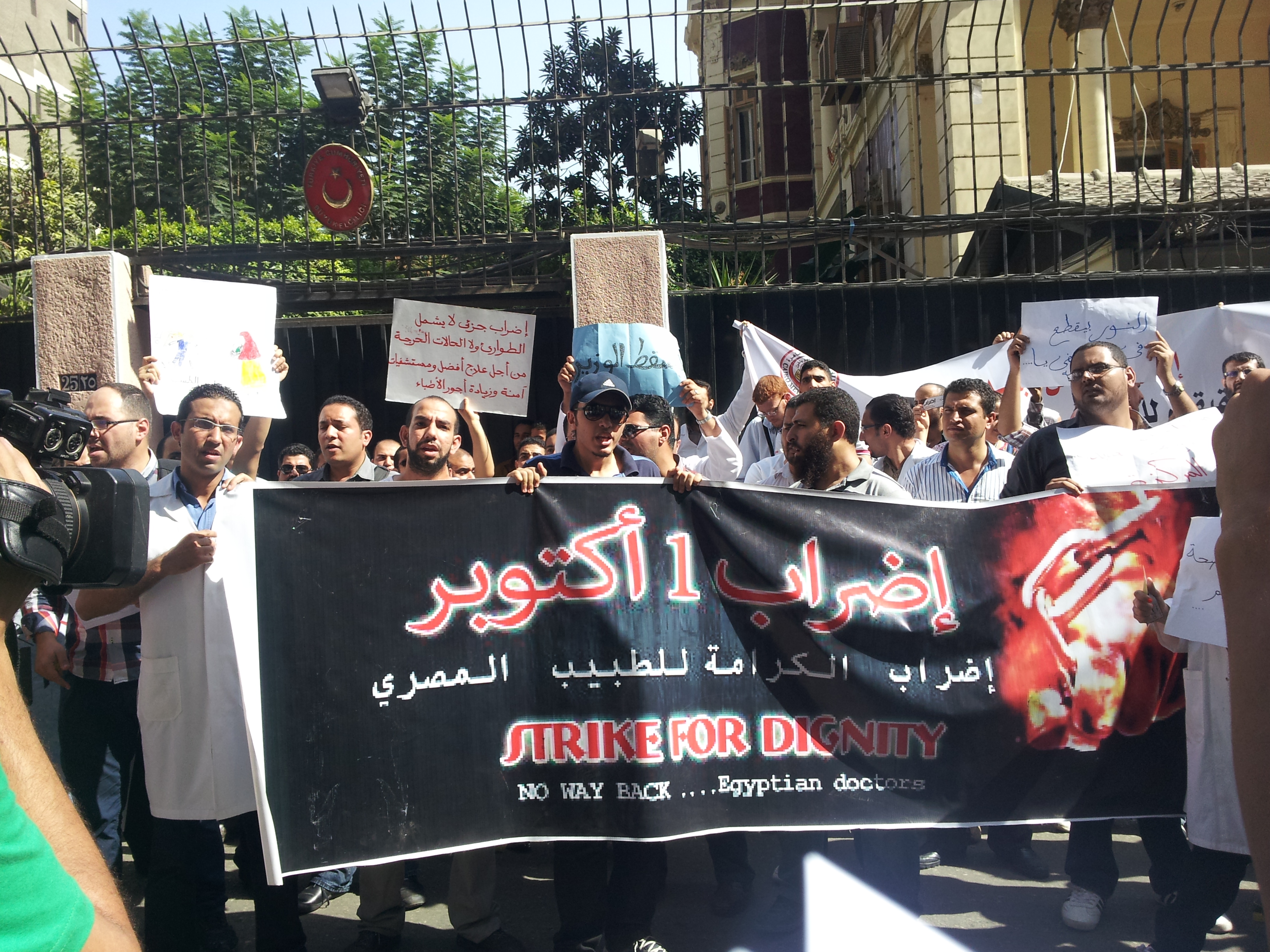By AFP
CAIRO: Here are the main developments this year in Egypt, rocked by the most serious anti-government demonstrations since President Hosni Mubarak came to power in 1981:
JANUARY 2011
– 17: A 50-year-old man sets himself on fire outside parliament, an apparent copycat of the suicide of a young Tunisian in mid-December, which unleashed an uprising that overthrew president Zine El Abidine Ben Ali.
– 18: A 25-year-old unemployed man dies after setting himself ablaze in the northern city of Alexandria. Another man, a lawyer in his forties, sets himself alight outside government headquarters in Cairo.
– 24: Leading opposition figure Mohamed ElBaradei says opponents of Egypt’s long-running regime should be able to follow the lead set by the toppling of Tunisia’s president.
– 25: Anti-government demonstrations bring several thousand people on to the streets across Egypt. Two demonstrators killed in Suez after clashes with police and in Cairo a police officer dies after being beaten by demonstrators.
– 26: Thousands of people demonstrate in Egyptian towns, despite a strict ban imposed by the authorities. Egyptian police fire tear gas at protesters.
– In Cairo a protester and a policeman are killed in clashes.
– In Suez, 55 demonstrators and 15 police officers injured in clashes.
– 27: Security forces flood central Cairo. Hundreds of protesters clash with police in Suez and Ismailiya.
– A young man is shot dead by police in the Sinai town of Sheikh Zuwayed.
– The White House warns the Cairo government and protesters they have an “obligation” to avoid violence. The European Union calls on Egypt to respect the right to protest.
– 28: Anti-regime protests come to a head after Friday prayers. In Cairo riot police fire tear gas and rubber bullets to disperse tens of thousands of protesters, while in Suez a protester is killed and in Alexandria the governorate building is torched.
– Internet services go down.
– Nobel laureate ElBaradei joins thousands in Friday prayers in Cairo, a day after returning home and saying he is ready to “lead the transition.”
– Mubarak imposes a dusk-to-dawn curfew and calls on the army to assist beleaguered police in enforcing it.
– Key ally the United States, Britain and Germany express concern about the violence, with Britain saying the protesters had “legitimate grievances.”
– Protesters torch the headquarters of the ruling National Democratic Party.
– 29: Tens of thousands of protesters flood Cairo streets, ignoring an extended 4:00 pm to 8:00 am curfew, also applied in Alexandria and Suez. Clashes break out with security forces. Three people killed in the capital while a mob in Rafah kill three police.
– The nationwide death toll since Tuesday reaches at least 51.
– Violent clashes in Ismailiya.
– The army calls on Egyptians to protect themselves against looters. Dozens of shops ransacked in Cairo.
– The resignation of the government, promised by Mubarak, is announced.
– Ahmed Ezz, widely seen as a linchpin of a corrupt regime, resigns from the National Democratic Party.
– The banned Muslim Brotherhood, the best-organised opposition group, calls for a peaceful transfer of power through a transitional cabinet.
– ElBaradei says Mubarak “must go”.
– Influential cleric Yusuf al-Qaradawi urges Mubarak to step down for the good of the country.
– Egyptian intelligence chief Omar Suleiman sworn in as vice president, the first such post to be held in Mubarak’s 30-year presidency.
– 30: Thousands of convicts break out of prisons.
– Egyptian warplanes make deafening low passes over protesters thronging the city centre as Mubarak visits central military command.
– The opposition charges ElBaradei with negotiating with the regime.
– Pan-Arab satellite television channel Al Jazeera ordered to close in Egypt.
– The United States and several other governments prepare to evacuate their nationals.
– The White House says President Barack Obama in calls to regional leaders on Saturday voiced support for “an orderly transition to a government that is responsive to the aspirations of the Egyptian people.”
– Israeli Prime Minister Benjamin Netanyahu says Israel is carefully watching developments.
– The six days of nationwide protest have left at least 125 people dead.
– Police ordered back onto the streets as the curfew is extended to run from 3:00 pm to 8:00 am.
– Parliament speaker Fathi Surur says the results of 2010′s fraud-tainted parliamentary elections will be revised.



